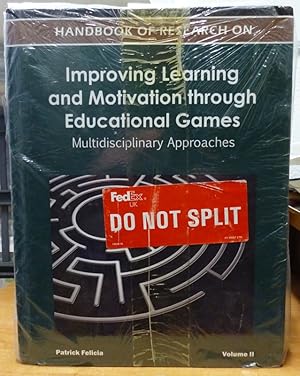Game-Based Learning is becoming increasingly popular thanks to its ability to both motivate and teach a new generation of learners frequently referred as “digital natives.” This new breed of learners uses computers on a regular basis, plays video games frequently and is often driven by emotionally-charged material. Handbook of Research on Improving Learning and Motivation through Educational Games: Multidisciplinary Approaches provides relevant theoretical frameworks and the latest empirical research findings on game-based learning. It is written for professionals, such as students, teachers, developers or managers who want to improve their understanding of the important roles and applications of educational games in terms of teaching strategies, instructional design, educational psychology, and game design.
Patrick Felicia is a Lecturer, Researcher and Course Leader at Waterford Institute of Technology (WIT). He works within the Department of Computing, Mathematics and Physics. Dr. Felicia earned his PhD in computer science from University College Cork. In WIT, his research and teaching is focused on the use of innovative and engaging educational experiences by combining Gaming Technology, Instructional Design and Educational Psychology. His research interests include Game-Based Learning, Technology-Enhanced Education and Adaptive Educational Systems. Dr. Felicia has presented and published internationally and has conducted several studies on the use and benefits of Game-Based Learning.

